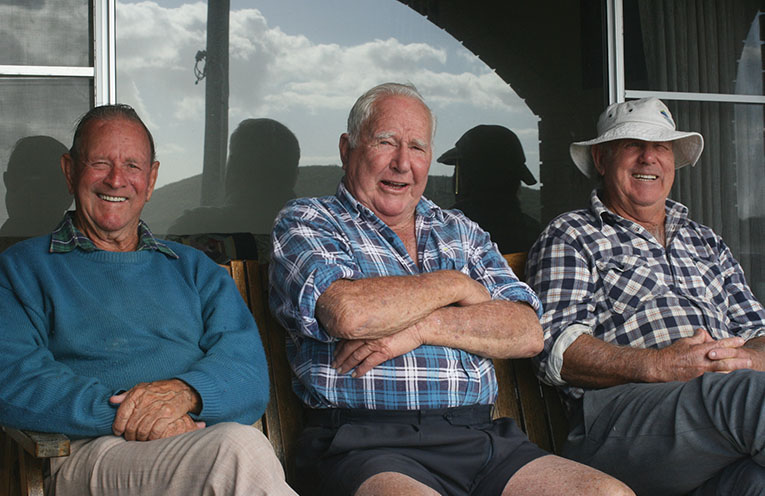BORN on 10 March 1940 to a family of fishermen and lobstermen, it was only a matter of time before Glyn Tarrant joined the crew.
At the age of nine or ten Glyn recalls some of the family – mum Rita, dad Bobby and brother Colin – moving from their home in Nelson Bay into Arthur Murdoch’s hut in Crayfish Hole.
Living on Fingal Island over the lobster season from July to October was convenient for the lobstermen to continually set and re-bait their 40 or 50 traps.
The Tarrants based themselves on the island for many years.
“I remember my father telling me that when the ‘Pappinbarra’ went down in 1929 the Grit Hole filled up with butter which was part of the cargo,” Glyn said.
“The family ate butter for weeks and weeks.”
Mother Rita had much to do in a shack with no conveniences.
Meals included fish, lobsters and abalone with vegetables grown on the island.
The island cow provided fresh milk and the light keeper Cliff Smith was always willing to help out when needed.
When her chores were done Rita spent hours fishing in Crayfish Hole.
“Red rockcod, boots, rainbows, wirrah and the occasional groper were reeled in and filleted for the cooking pot. None were very big,” recalls Glyn.
The skeletons were hung to be used for lobster bait.
At the age of ten years it was expected that young Glyn would attend school, much to his displeasure.
Living on Fingal Island, this became a challenge.
Glyn’s memories of the time are clear.
“Alfred Stanley Basham was the only teacher and there were 15 to 20 kids who attended Nelson Bay Public School – where it stands today.”
To attend school on “good days”, when the tides permitted, Glyn would walk across the Fingal Spit and trudge up the big sandhill, through the bush and across the swamp behind Shoal Bay into Nelson Bay – a round trip of about 10 to 12 kilometres.
The distance was no issue for Glyn.
“Everyone walked everywhere in those days,” he said.
When the Spit was washed out or the tides were too high Glyn’s father, known as “Old Mouldy”, sat the youngster in the dinghy and rowed him to what was known as “Old Rocks” on the southern side of Box Beach.
“Only took ten minutes,” Glyn said.
Glyn would be dropped off on the beach, trot off to school and be picked up in the afternoon.
This all seemed unnecessary to the young pupil who couldn’t wait to join his fishing brothers.
“I had many headaches and always the flu was a good excuse to miss a day’s schooling. I wagged a few days as well,” he said.
By John ‘Stinker’ CLARKE



